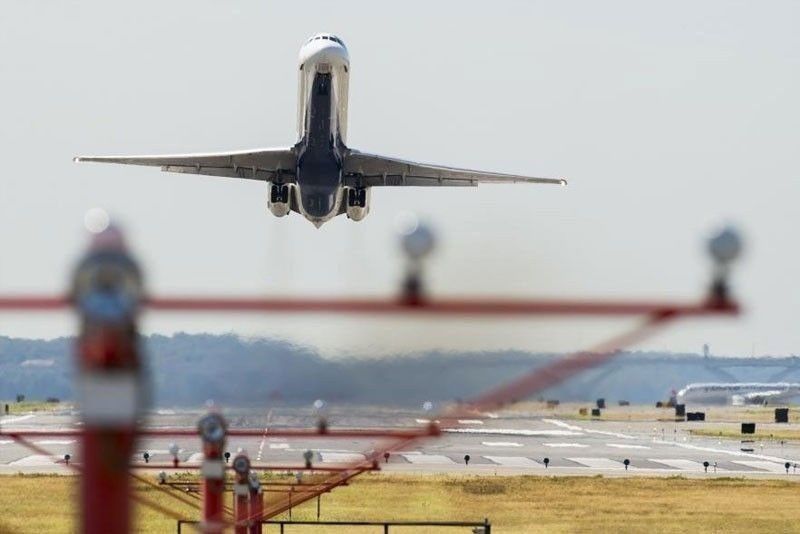Air fares to go up as peso weakens

MANILA, Philippines — Low-cost carrier Cebu Pacific expects the cost of air travel to go up if the peso keeps on depreciating, as the airline sources its jet fuel abroad, making it prone to foreign exchange fluctuations.
Lance Gokongwei, chairman of Cebu Pacific’s parent Cebu Air Inc., is cautious about the impact of the peso’s decline against the dollar on the operational costs of the airline.
Gokongwei said Cebu Pacific would feel the impact of the peso’s depreciation, especially as it buys most of its inputs from abroad like jet fuel.
“As business people, we don’t like any abrupt changes. The weakening of the peso in the last few days is a little bit fast, but I’m sure the government has enough foreign exchange reserves to help stabilize the situation,” Gokongwei said on the sidelines of the BusinessWorld Economic Forum.
“Anything abrupt creates uncertainty and of course cost pressures. A lot of the inputs we use are imported, fuel especially,” he added.
Like other airlines, Cebu Pacific pays between 60 to 70 percent of its expenses in dollars, exposing its operations to cost pressures resulting from forex fluctuations.
The peso pierced the 58 to $1 level on Tuesday, closing at 58.27, the weakest in nearly 19 months, and mirroring the decline of Asian currencies.
The Bangko Sentral ng Pilipinas believes that the dollar will keep on picking up value as long as the US Fed delays its plans for rate cuts.
The recent depreciation of the peso is impacting the cost of airfares, to the detriment of travelers. Although the fuel surcharge will be kept at Level 6, the Civil Aeronautics Board is increasing the exchange rate to 57.26 to $1 in June, from 55.97 to $1 this May.
This means that Filipinos will pay more for fuel surcharge if they are flying with an airline that transacts in foreign currency. Aside from this, the International Air Transport Association (IATA) projects the cost of jet fuel will remain expensive this year.
Apart from the forex risks, IATA warned that prices of jet fuel would remain high as a consequence of the geopolitical conflicts in Europe and the Middle East.
For 2024, IATA expects the cost of jet fuel to average $113.8 per barrel, equating to a global bill of $281 billion and accounting for 31 percent of airline expenses.
- Latest
- Trending































